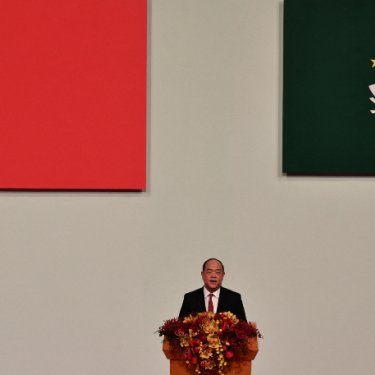China: journalists under increased pressure as national security law expands in Macau

Reporters Without Borders (RSF) denounces the expansion of the scope of Macau's national security law, effective this week, which increases the pressure on journalists and further threatens the residents' right to information.
On 30 May 2023, an extended version of 2009 Macau's “Law on Safeguarding National Security”, a regulation which defines seven crimes carrying a maximum sentence of up to 25 years' imprisonment, entered into force.
The law now extends to “any individual” suspected of undermining China's national security, meaning also outside of territory, and regardless of nationality. The scope and definition of the crimes have also been significantly widened : “subversion” and “secession” now extend to non-violent acts, “sedition” includes "acts that incite participation in riots", and “theft of state secrets” has become “violation of state secrets”.
“The original regulation was already dangerously open to interpretation, and the expansion of its scope makes it the perfect tool for the government to intimidate, and possibly detain, the journalists they dislike. We urge the international community to build up pressure on the Chinese regime to restore full press freedom in Macau and Hong Kong, and to release all 113 journalists and press freedom defenders detained in the country.
Macau, the other special administrative region of China, was handed over in 1999, two years after Hong Kong, and on paper is to be governed autonomously for 50 years. The former Portuguese colony, portrayed as the “poster child” contrary to rebelious Hong Kong, has also seen a decline in its already limited press freedom in line with Chinese leader Xi Jinping's crusade against the right to information.
In Hong Kong, since the adoption of the National Security Law in 2020, not less than dozen journalists and press freedom defenders have been prosecuted under this regulation, and 7 media outlets have ceased operations.
In mainland China, where trumped-up accusations of national security crimes are routinely used as a weapon against independent voices including journalists, the regime also recently extended the scope of its counter-espionage law.
Hong Kong ranks 140th out of 180 countries and territories in RSF's 2023 World Press Freedom Index , having plummeted down the rankings from 18th place in just two decades. China itself ranks 179th of the 180 countries and territories surveyed, and is the world's largest captor of journalists and press freedom defenders.
